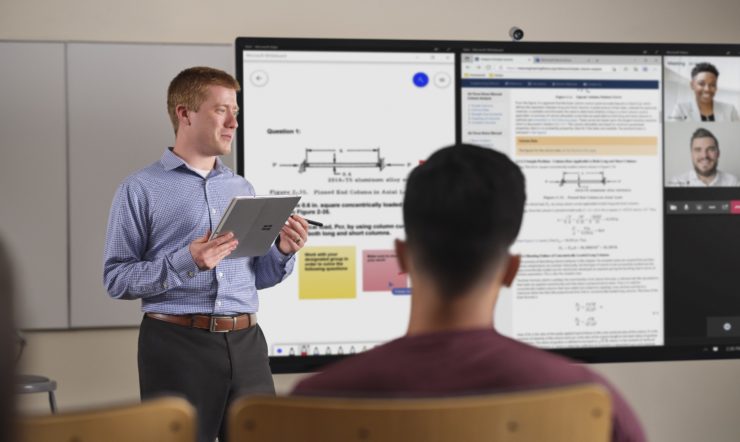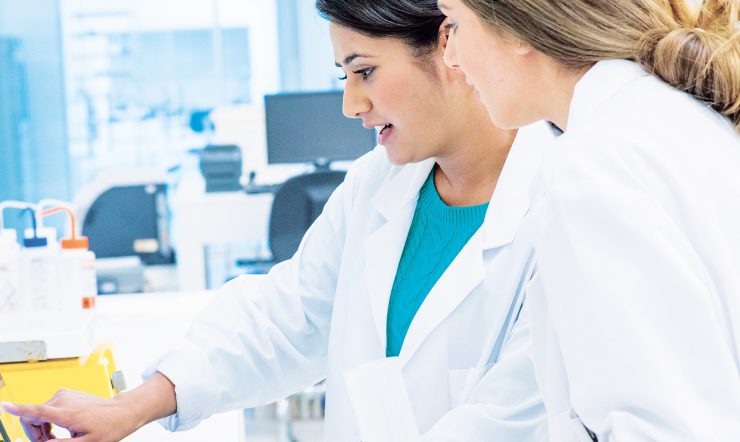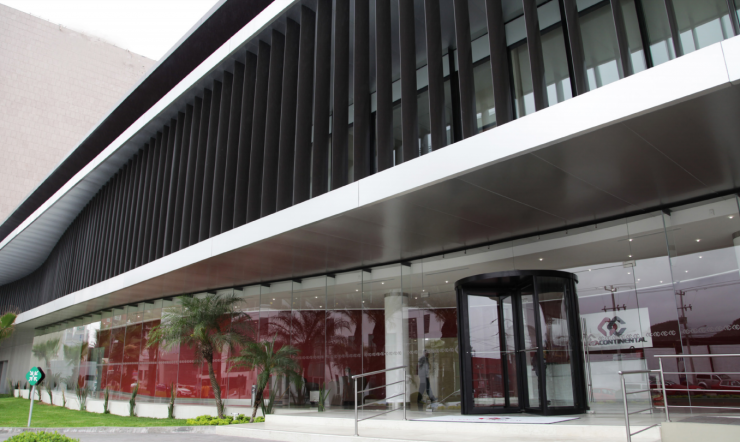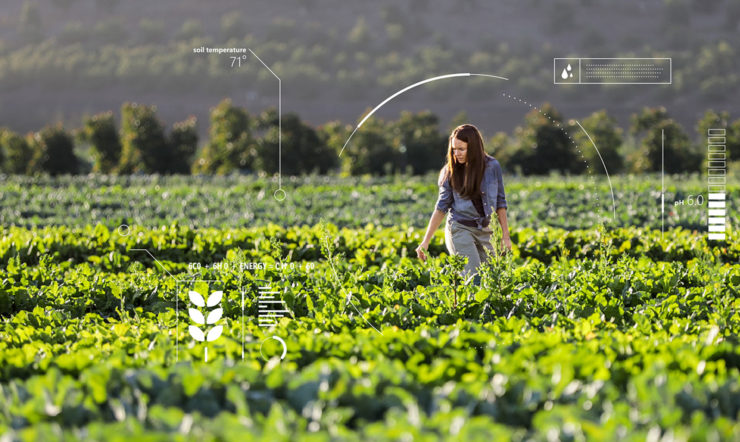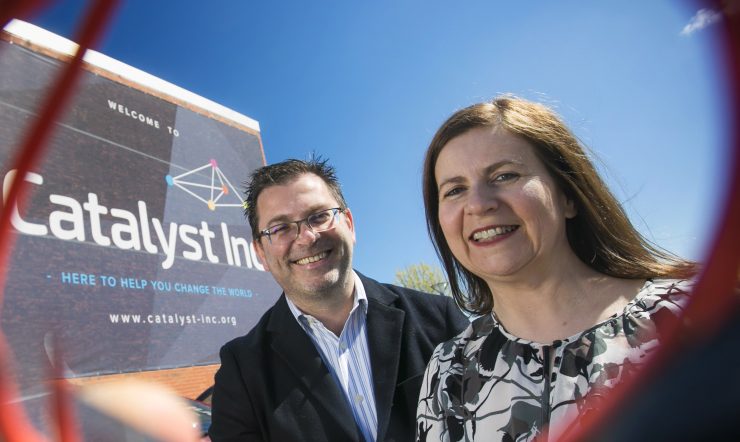Patients and medical staff in Northern Ireland are benefitting greatly from the latest, cutting-edge, cloud technology
The Belfast Health & Social Care Trust (BHSCT) Regional Molecular Diagnostics Service (RMDS) delivers genetic and molecular diagnostic services to all five health trusts in Northern Ireland, covering a population of 1.8 million. Since 2019, the RMDS team of the BHSCT have availed of Microsoft Azure and as a result have seen a significant improvement in the delivery of diagnostic services and the ability to handle large genomic datasets. This has ultimately led to improved quality of care for patients with cancer and other conditions.
Genetic sequencing is an important and evolving area of medical science, enabling a more accurate diagnosis of disease and a more personalised treatment, which results in better patient outcomes. Using Azure technology including CycleCloud allows the team to scale and accelerate the service for patients. With this technology, scientists can determine the personal and family risk of developing an inherited form of cancer e.g. breast cancer and patients can be prescribed appropriate treatment that will have the best outcome for their genetic composition, explains Dr Shirley Heggarty, consultant clinical scientist at BHSCT.
She adds that genetic testing offers the opportunity of identifying patients that would benefit from new diagnostic treatments for conditions such as spinal muscular atrophy, thereby preventing early deaths, common with this condition. Genetic testing can also identify those patients for whom gruelling treatments such as chemotherapy wouldn’t work, ensuring they don’t go through needless treatment that wouldn’t benefit or indeed may be detrimental to them.
Protecting patients and family members
Genetic sequencing also offers the opportunity to protect the patient’s wider family members. Medical teams can counsel and advise family members who are also considered to be at risk, providing testing that will lead to early identification of a disease and access to preventative screening and monitoring programmes.
“If we have a cancer patient with a genetic variant that is considered to cause disease,” says Dr Heggarty, “they could have pre-symptomatic family members who may also be at risk: with this technology, we’re now better able to monitor and have an early warning system in place to assess their risk.”
Moreover, this technology addresses a significant unmet need around the diagnosis of rare genetic disorders. “Many of these patients are quite complex cases,” explains Dr Heggarty.
Genomic sequencing it is hoped will reduce the ‘diagnostic odyssey’ for these patients, where it is hoped that a diagnosis can be provided for the majority of cases providing the family with the reassurance of a confirmed diagnosis for the child as well as providing reproductive options to their parents if they are considering having more children.
Boosting efficiency and data security
With CycleCloud, BHSCT scientists can be 6 to 10 times quicker thanks to the fact that they can now run analyses in parallel rather than one after the other.
Before significant investment to set up its in-house next-generation sequencing facility using Microsoft Azure for secondary analysis, BHSCT could only analyse a single gene from a single patient at one time.
“This technology allows us to look at multiple genes in multiple patients at the same time,” explains Dr Heggarty, “so a technologist who was tied up working on one patient is now doing 30 to 40 patients for multiple gene targets for several different genetic conditions. Or they can now look at multiple patients with rare genetic disorders, sequencing 20,000-plus genes.”
Given the sensitive personal nature of the data involved, the fact that an Azure-based solution could guarantee high standards of security and privacy, was key to the implementation, noted Dr Heggarty.
Harnessing the power of cloud for scale
As the team moves from assessing a single gene towards the whole genome eventually, that means an exponential increase in the volume of data involved.
Microsoft Azure enables BHSCT to scale up the resources needed as additional patient testing comes on-stream. This allows BHSCT to manage the infrastructure costs over time instead of having a large upfront cost
according to Mark Loughran, Digital Advisor for Health at Microsoft Ireland.
Using Azure has led to further operational efficiencies, including minimising administration time as fewer samples and less physical paperwork is needed, and reducing errors due to having a single electronic source.
This has enhanced the benefits BHSCT already saw as an early adopter of Office365 and Teams, and cemented its reputation as leading the region when it comes to the digitalisation of healthcare.
Unsurprisingly, setting up the next-generation sequencing facility at BHSCT required careful planning, with a long design phase involving multiple stakeholders, including IT leadership, scientists, consultants from a cross-section of disciplines and Microsoft’s own software engineers specialising in genetics.
Ever-increasing benefits now and in future
The services offered by BHSCT are now becoming more mainstream, with neurologists, oncologists and metabolic consultants across Northern Ireland all referring patients for genetic testing.
As data is stored in the cloud, bioinformaticians can go back and reinterrogate the stored data for additional gene targets. For example, if a patient with breast cancer later develops ovarian cancer a fresh analysis can be carried out for genes specifically associated with the ovarian cancer. Likewise, if NICE guidelines for patient care and treatment change, the Trust can go back and retest the data to determine the patient cohort that would benefit from the new guidelines.
The ripple effect doesn’t end there, as Dr Heggarty says the service is also encouraging development of a workforce capable of delivering clinical molecular diagnostics for the region.
This has made a huge difference in developing the skills of our own workers to handle and understand the genomic data. Previously, many scientists were tempted into industry or to mainland UK once trained, but now there are opportunities to work on cutting edge diagnostics they are staying within the department.














